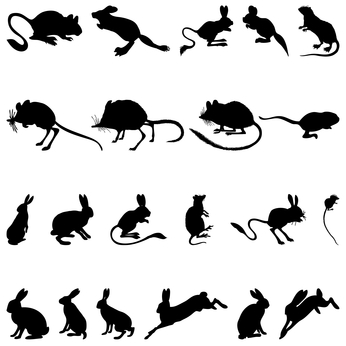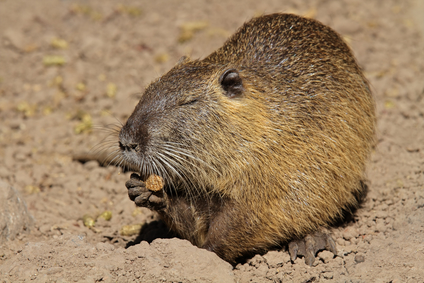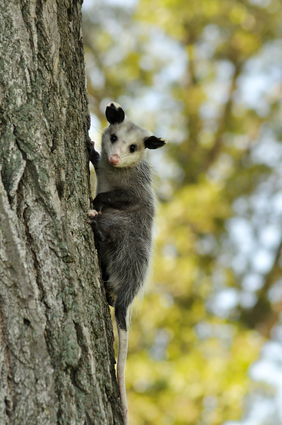Rodents and Rodent-Like Animals You Might Encounter In Middleburg, VA
When you think of rodents that might invade your home, you’ll likely have mice and rats come to mind. The most common are the Black rat, the Norway rat, the deer mouse, and the house mouse. But these are not the only rodents that may be in your vicinity looking for food.

But aren’t rodents cute? Some are and some aren’t, but that’s not why everyone needs to be on their guard about rodents. Here’s what one animal lover had to say about where he drew the line:
I love all animals so why have I fought so hard to keep these guys out? Two words recently covered extensively in the news: zoonotic diseases. Specifically rat bite fever, tularemia, hantavirus, lymphocytic choriomeningitis virus, leptospirosis, salmonellosis, yersiniosis, pathogenic E. coli infection and campylobacterosis. Those are a mouthful, eh? I won’t go into the details of each disease, some are worse than others, but I want no part of any of them. Then you have parasites on the rodents like fleas and ticks that cause other issues like Lyme disease and the Bubonic plague, no thank you. Read more at Living Snoqualmie…
Pathogens like the hantavirus, for instance, are the reason why people in areas where it exists are warned about vacuuming up after rodents in living spaces. Instead, wet-cleaning methods using bleach, disinfectants, rubber gloves and bags should be used. You could be exposed to this potentially deadly disease when you inhale the dried up urine, saliva, or feces from wild rodents after they are stirred into the air.
Nutria

If you live near a water body, then your home might play host to nutria (coypu or swamp rats), an exotic invasive species of the North America wetlands. These are particularly destructive to the ecosystem because they eat entire plants and remove their root systems while at it. This destabilizes the soil around a water body, causing it to erode and become open water.
As mentioned, nutria will dine on numerous agricultural crops, such as rice, corn, wheat and more. They’ve also been known to gorge on home vegetable gardens and freshly planted grass.
Not only are invasive nutria catastrophic for the environment, but they also play host to several diseases and parasites including tuberculosis, tapeworm, liver flukes and nematodes. It can be a significant health hazard for people and animals to drink or swim in water contaminated by nutria feces and urine, according to FWS. Read more at Live Science…
Controlling nutria populations is quite a challenge in areas that they invade. For instance, people have built 3-foot wire fences that go 6 inches underground around their lawns and gardens. Constructing shields of sheet metal around wood structures to prevent nutria from gnawing on them, or putting electric wire fences around vegetation may also be necessary. Fortunately, you will rarely find nutria in Loudoun County.
Virginia Opossum

Another animal that doesn’t get much attention is the nocturnal Virginia opossum. Although it has Virginia in its name, is also found throughout the midwestern and eastern United States.
When aggravated, opossums can hiss, growl, drool, or snap their teeth, and if they can’t make a quick getaway, they may open their mouths very wide hoping their 50 teeth will strike fear into whomever is bothering them. They also can go into an inactive, deathlike state, lying motionless (playing possum) and may even release a musky odor. When idle, opossums groom themselves meticulously, much like a house cat. Opossums are opportunists and will eat almost anything, including worms, rodents, insects, fruit, grain, and carrion (dead animals). Read more at Del Gazette…
While most people assume that the Virginia opossum is a rodent, it’s not. It’s actually a marsupial or pouched animal. You may think it’s bad news to have one in your yard, but it may actually be part of your rodent control if your yard has ever hosted ticks. In addition to feeding on rodents, one Virginia opossum can eat about 5,000 ticks in one season.
So if you keep a Virginia opossum, you’ll get the triple benefit of rodent and tick control, as well as a pet. Unfortunately, many consider this opossum’s face one that “only a mother could love”. If that’s you, Backyard Bug Patrol is here for you. Reach out to us for safe and effective rodent control services.
Related posts:
- Your Rodent Control Plan in Ashburn, VA Must Be Specific To Be Effective
- Positive Strides In Tick Control And How They Affect Us At Round Hill, VA
- Facts That Will Fuel Your Dislike For Roaches in Chantilly, VA
- The Plague Is A Re-emerging Disease – What Hamilton, VA Residents Need To Know
- What Waterford, VA Residents May Not Know About ‘Blood Sacrifice’ In Mosquito Research
